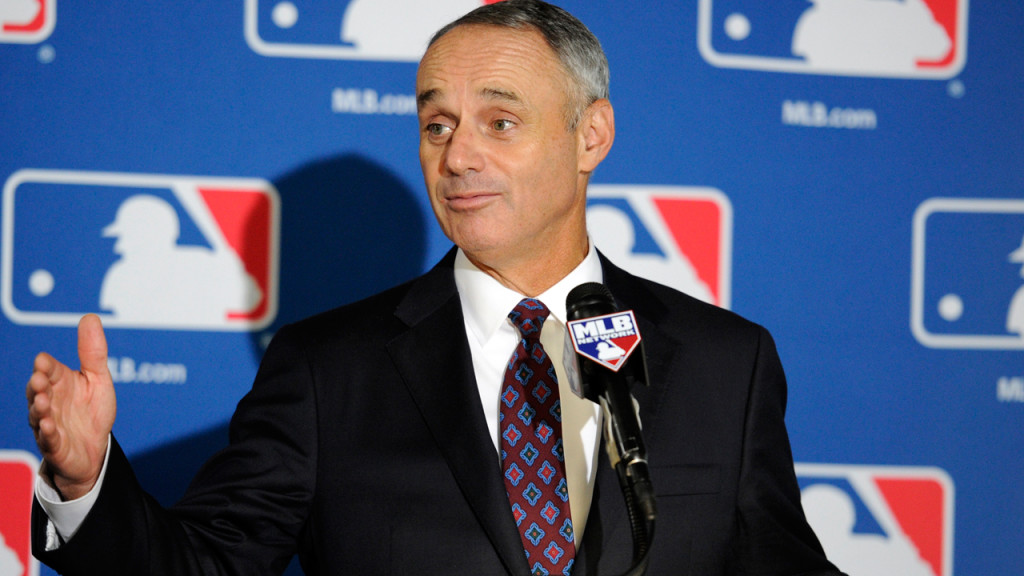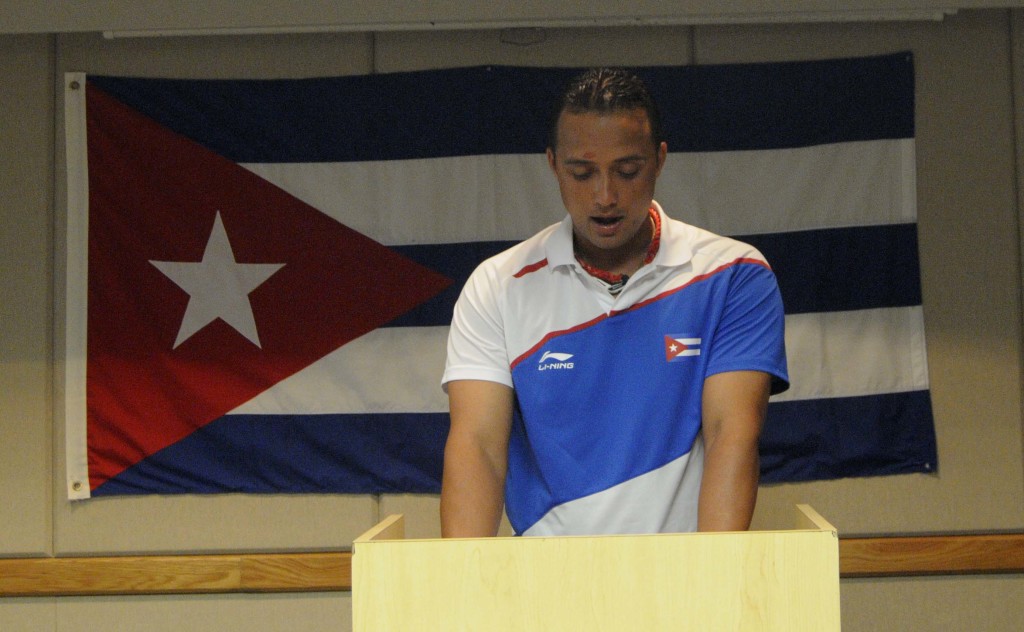
Tensions grow between OFAC and Cuban baseball
Just when the ice between the U.S. and Cuba seemed to be breaking, the OFAC has dumped on them a pail of cold water.
On Tuesday (Feb. 3), the Treasury Department’s Office of Foreign Assets Control announced that henceforth Cuban baseball players will not need to request “special licenses” from the State Department. All they’ll need to do is to sign a statement saying that they’ve abandoned their country forever, and the doors of Major League Baseball will open to them.

The news — which spread like wildfire via an Associated Press dispatch published by ESPN and other media — confirmed the mistrust that originated on Jan. 30, when the Office of the Commissioner of Major League Baseball (MLB) sent a letter to the MLB teams asking them “not to reach agreements with Cuban players until you receive a new announcement from the Office of the Commissioner.”
The Commissioner’s request was joined by a letter sent by the OFAC to the Cuban players who had recently requested licenses to play in U.S. competition, saying that the U.S. Government now considered them “unblocked.”
What at first could have been considered as a step forward, a show of good will in the effort to normalize relations, now becomes a big step backward, a return to the proposal made by Florida little over six months ago, which departs from the spirit of dialogue expressed by President Obama in December 2014.
In the letter, sent to the 30 MLB teams, the MLB’s executive vice president, Dan Halem, said that “the new ruling responds to the amendments to the Cuban Active Control Regulations (CACR), announced last month by the OFAC. […] The changes came as a result of the announcement made by President Barack Obama about the reestablishment of relations between the United States and Cuba,” the AP report says.
Under the new set-up, Cuban baseball players must sign a document called “Declaration of permanent residence outside Cuba,” which says, in part: “I have taken up permanent residence outside of Cuba. In addition, I hereby state that I do not intend to, nor would I be welcome to, return to Cuba. Further, I hereby state that I am not a prohibited official of the Government of Cuba … and am not a prohibited member of the Cuban Communist Party.”
The law, the trap
Apparently, the newly announced policy is extremely advantageous for the Cuban players, who — under Cuba’s current emigration policy — can travel freely to any other country in the world and settle wherever they are accepted.
However, it is necessary to pay close attention to the second sentence, because it seals a pact of undefined proportions and in no way simplifies previous positions. Stated clearly, the essential contradiction remains: In order to play in the MLB, the players must abandon Cuba forever.
True, this move — as sought by Florida and the basis for this polished version by the OFAC — should reduced greatly the illegal trafficking in persons by the Mexican cartels and similar organizations, especially because it won’t be necessary for the players’ new residence to be the United States.
All that will be needed will be to terminate the contract with the provincial team so that, once the release is granted, the player will be free of his obligations to the nation. After that, all that he’ll need is talent.
In reality, the law passed in June 2014 affected only those ballplayers who arrived in Florida, leaving intact the possibility of illegal travel across the 90 miles that separate both countries.
The new OFAC measure refines that approach and, without changing the position toward Cuba and while taking advantage of its migratory context, strikes a political blow in its stance of condemnation for trafficking in humans.
However, the victim will again be Cuban baseball, which will continue to see a drain in its talent, because anyone who decides to bet on his future in the world’s best league (and that’s his legitimate right) will be obligated to sign his way into exile.
The Cuban Baseball Federation (FCB), in view of the Jan. 30 memorandum, had explained that it maintained the position it had assumed in September 2013, i.e., it was fully willing to negotiate with the MLB.
In view of the new developments and after the defection on Tuesday (Feb. 2) of two Cuban players during the 57th Caribbean Games, the FCB has issued a statement repudiating the stimulus given to these practices and denouncing “the presence of merchants who have hounded our team since its arrival,” in the words of Heriberto Suárez, national director of baseball.
The statement, read in San Juan by catcher Frank Camilo Morejón, in the presence of Suárez and Jorge Polo, vice president of the INDER, is a condemnation of the repeated “manifestations and hounding by groups organized from the United States and other countries to encourage the theft of athletes.”
It also blasts the new measures by the MLB and the OFAC, describing them as a “clear stimulus to defections” in the Federation’s official website.
FCB officials in Cuba confirmed their full backing for the statements made by the Cuban delegation in Puerto Rico, saying that the MLB and OFAC statements represent an incentive — not a solution — to the complex reality that, after two decades, continues to accentuate.

Progreso Semanal/ Weekly authorizes the total or partial reproduction of the articles by our journalists, so long as source and author are identified.


